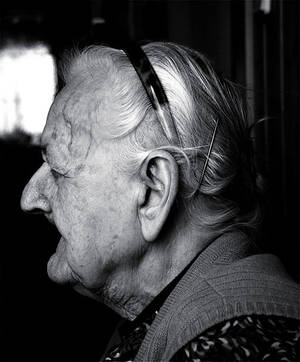 A new method for measuring biological age - the decline in function of organs as we grow older - has been used for the first time in young adults.
A new method for measuring biological age - the decline in function of organs as we grow older - has been used for the first time in young adults.
The study, published this week in the Proceedings for the National Academy of Sciences, determines biological age by looking at 18 separate biological factors ranging from measures of physical fitness and BMI (body mass index), to IQ and the health of your brain.
Each factor was weighted equally to ensure no bias was given to one measure over any other, though the authors acknowledge that this is something that will require more research for future studies.
Members of the landmark Dunedin Study were used in the research as the source of the data. The group consists of 1037 individuals born in Dunedin, New Zealand, between 1972 and 1973 and have been tracked throughout their lives.
The first measures for this study were taken when the group were aged 26, with follow up screenings at ages 32 and 38. The biological ages of the 38-year-old participants ranged from under 30 to over 60, based on the 18 factors being measured.
The team, from Duke University, also measured the 'pace of ageing' in the study group. This was calculated using the data from ages 26, 32 and 38 by drawing a 'line of best fit' for each of the 18 factors and then summing the slopes of those lines to produce an estimate for the pace of ageing.
Most participants were found to be ageing at the expected rate of around 1 biological year per chronological year, but some had values as high as 3 and others even had zero or negative values.
The participants with a negative pace of ageing are of particular interest because they may reveal molecular and behavioral pathways linked to rejuvenation.
The participants were also interviewed and asked about their own opinions of their age, specifically relating to levels of fitness and physical appearance. The study found that those with a higher biological age also felt older, perhaps lending some truth to the expression "you're only as old as you feel."
A further test was carried out using photographs of the participants' faces. A group of undergraduate students at Duke University were shown images of each of the participants and asked to record what age they thought that person was. Once again, those with a higher biological age were recorded as older by the students.
Previous studies looking at the ageing process have concentrated mainly on older people, whereas here the scientists have looked at young adults for the first time.
This is an important step in understanding the ageing process, since many chronic diseases associated with old age begin to form at a much younger age.
By studying young adults the team hope to be able to identify the first signs of decline in organ systems before the onset of disease, and therefore provide earlier treatment and prevention measures.
Luckily it's not all doom and gloom for anyone with a high biological age, because environmental factors play a very important role in the ageing process. Studies on twins have shown that only around 20% of ageing is genetic. "That gives us some hope that medicine might be able to slow ageing and give people more healthy active years," says senior author Terrie Moffitt.
The ultimate goal of the study is to be able to intervene in the aging process as early as possible, with future studies on young children already planned.
As Dan Belsky, the lead author in the paper, puts it, "To prevent multiple diseases simultaneously, ageing itself has to be the target. Otherwise, it's a game of whack-a-mole..."










Comments
Add a comment